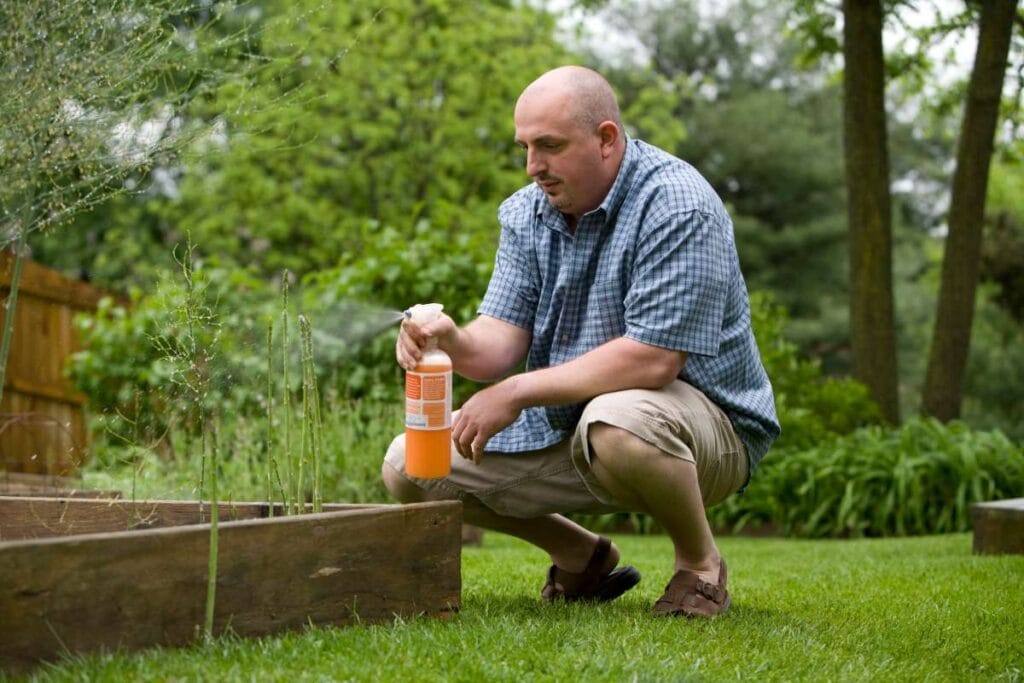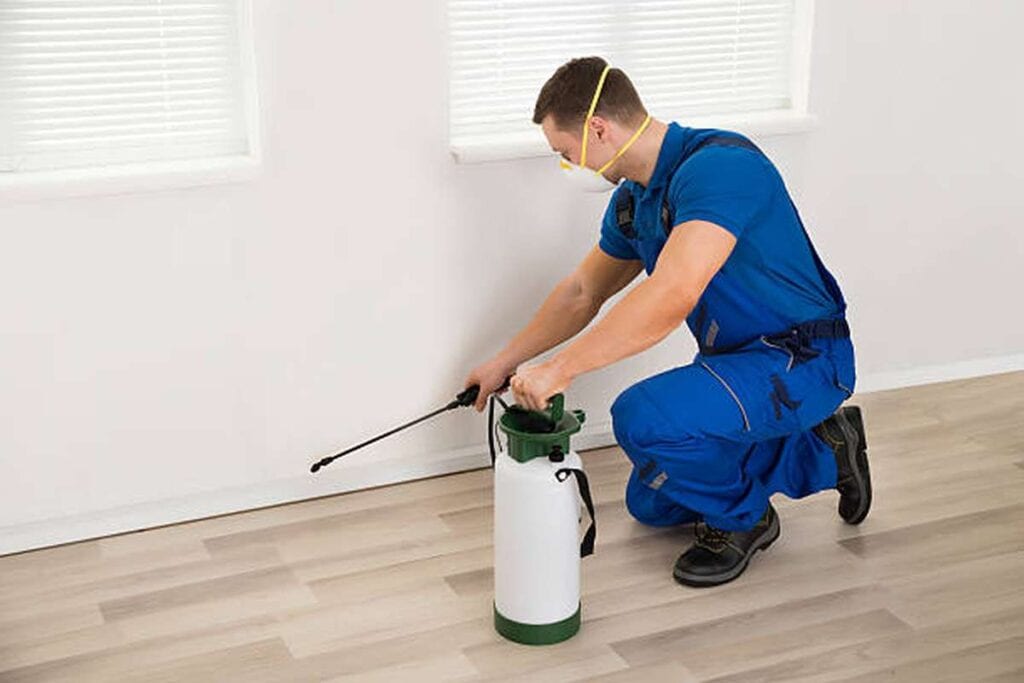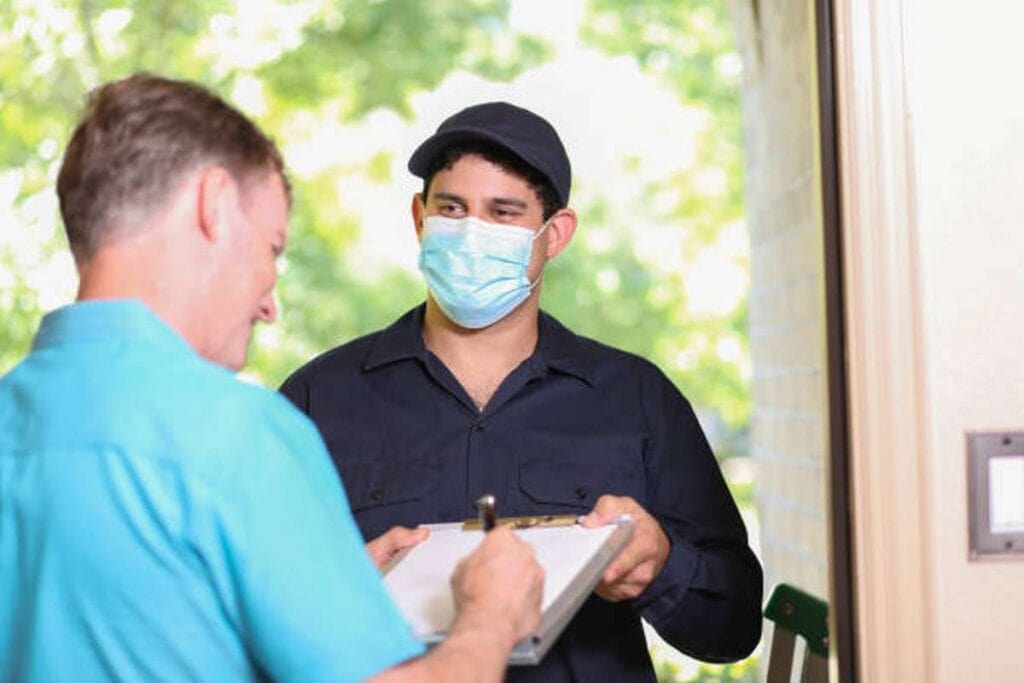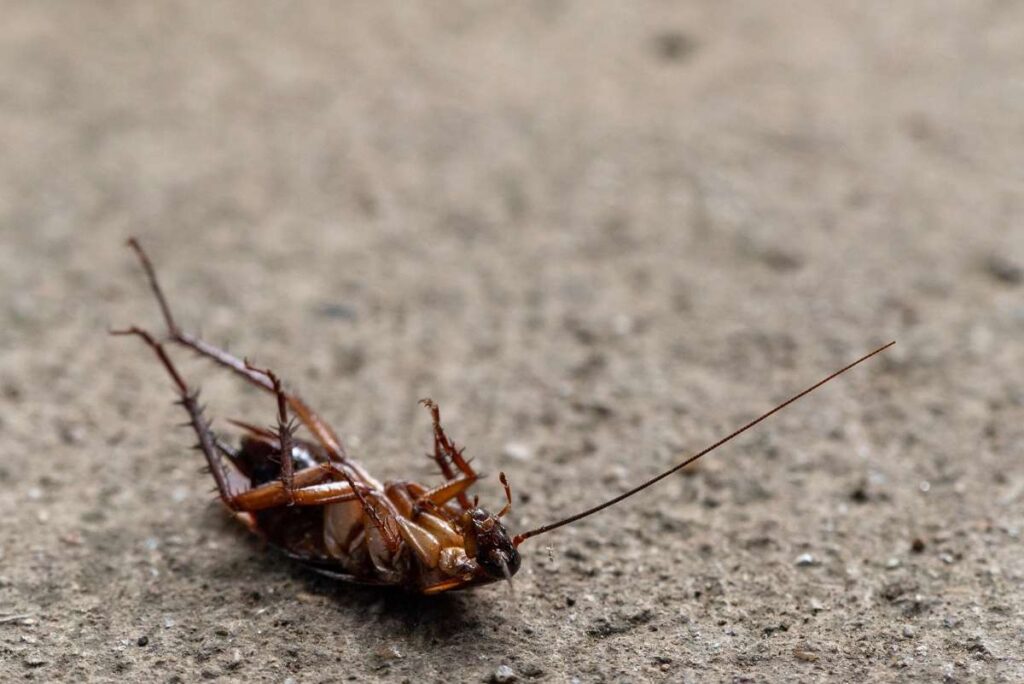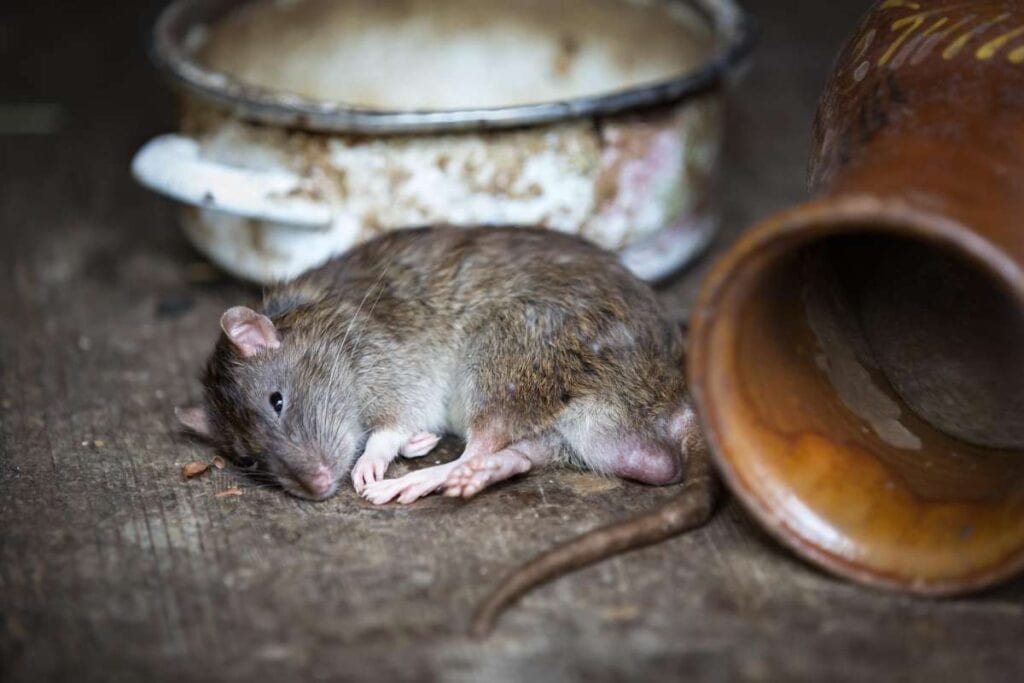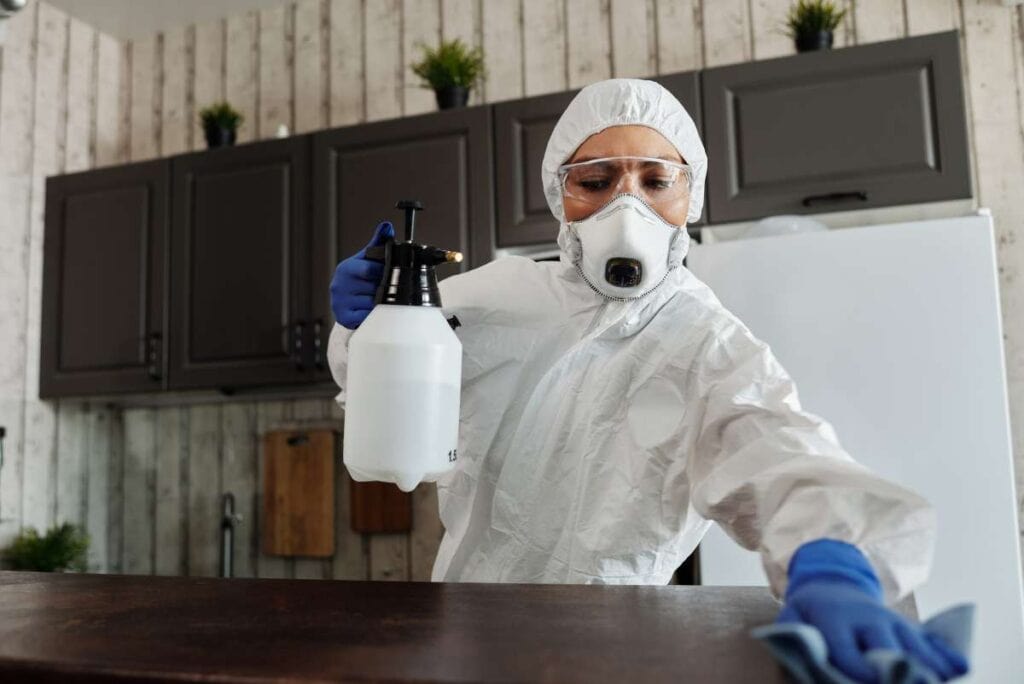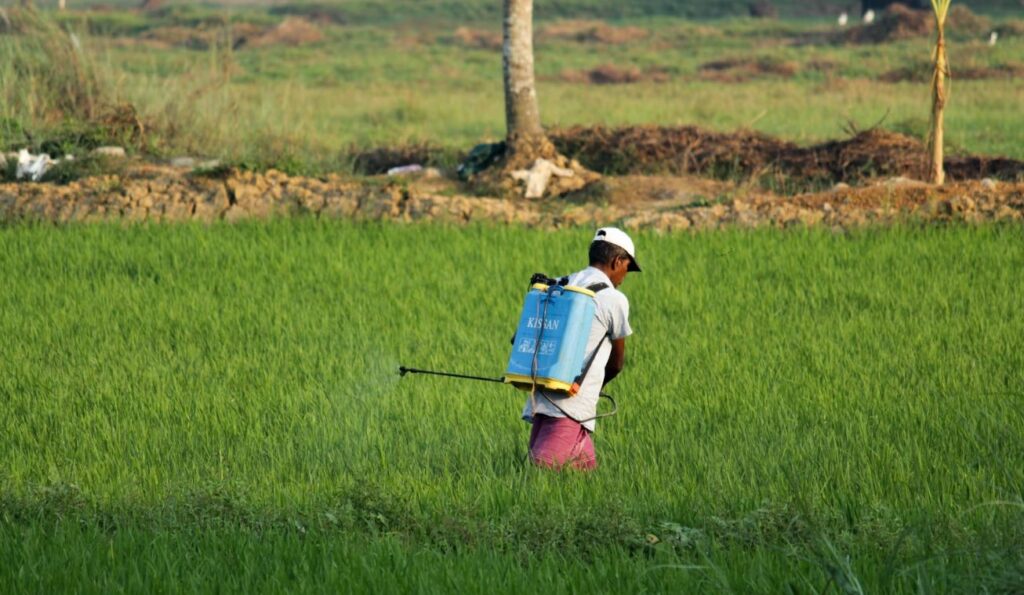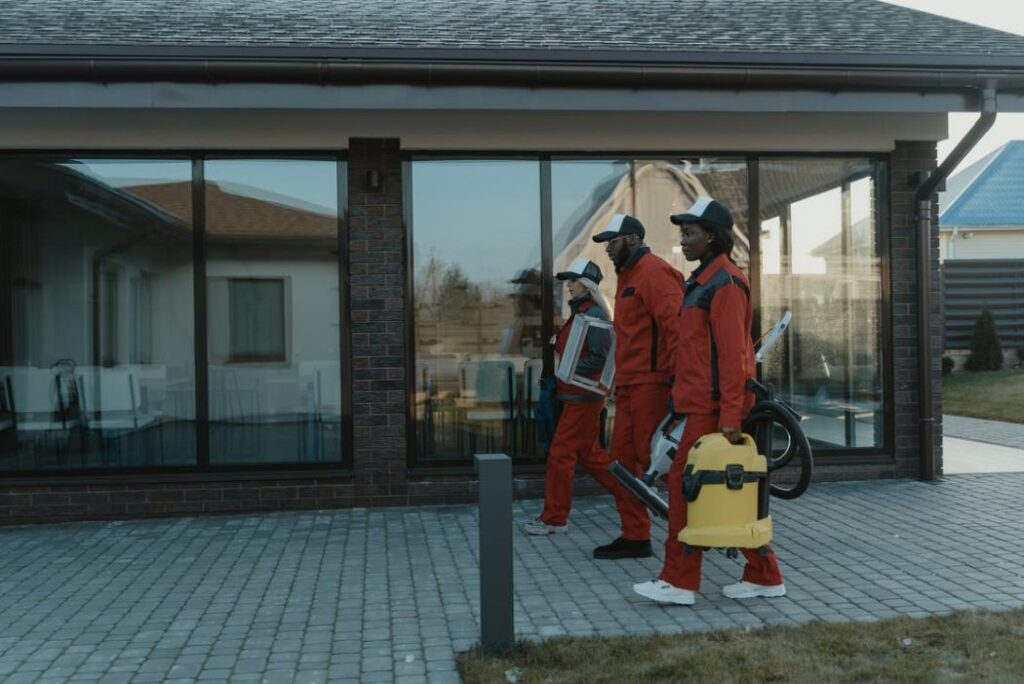There are a variety of approaches to pest control that you can take, which is helpful given that it can be difficult to prevent unwanted guests from entering your home.
In this article, we will talk about some of the most common pest control methods and how to choose the best way suited to your specific requirements.
Continue reading if you want to find out more about eliminating pests!
FAQs About Pest Control
In most circumstances, hiring a pest control company to handle the job for you yields results that are both more efficient and more quickly achieved. They can also save you money in the long run by detecting pest problems early on and getting rid of them quickly, so averting an expensive infestation and/or damage in the long run.
In order to effectively avoid common pests or when you move into a new home or apartment, we propose regular pest control treatments on a quarterly basis, or even on a bi-monthly basis for homes and apartments. These treatments can also be performed every other month. Treatments at a monthly frequency for a period ranging from three to six months are recommended for more severe infestations.
In the event that you are coping with a significant infestation of pests, be they insects or rodents, it is possible that your house will need to be inspected and treated on a regular basis up until the colony is completely exterminated. It may take a few months to accomplish this, depending on the degree of the infestation.
Controlling rats and insects is essential for a number of reasons, including the fact that these pests spread disease, infest your kitchens and bedrooms, and attack either you or your pets. It is for your own protection and good health that you should get rid of any form of pest that has made its home in your house, garage, or yard. For instance, rodents that find food in your kitchen may defecate on or near that food after eating it.
There are three primary draws for pests to enter a home: food, moisture, and refuge. They will be more interested in moving in if these three things can be obtained by them with less difficulty. As a result, denying them access to these things is the most effective method for preventing them from entering. The easiest thing to take away from them is their ability to eat.
Types Of Pest Control Strategies
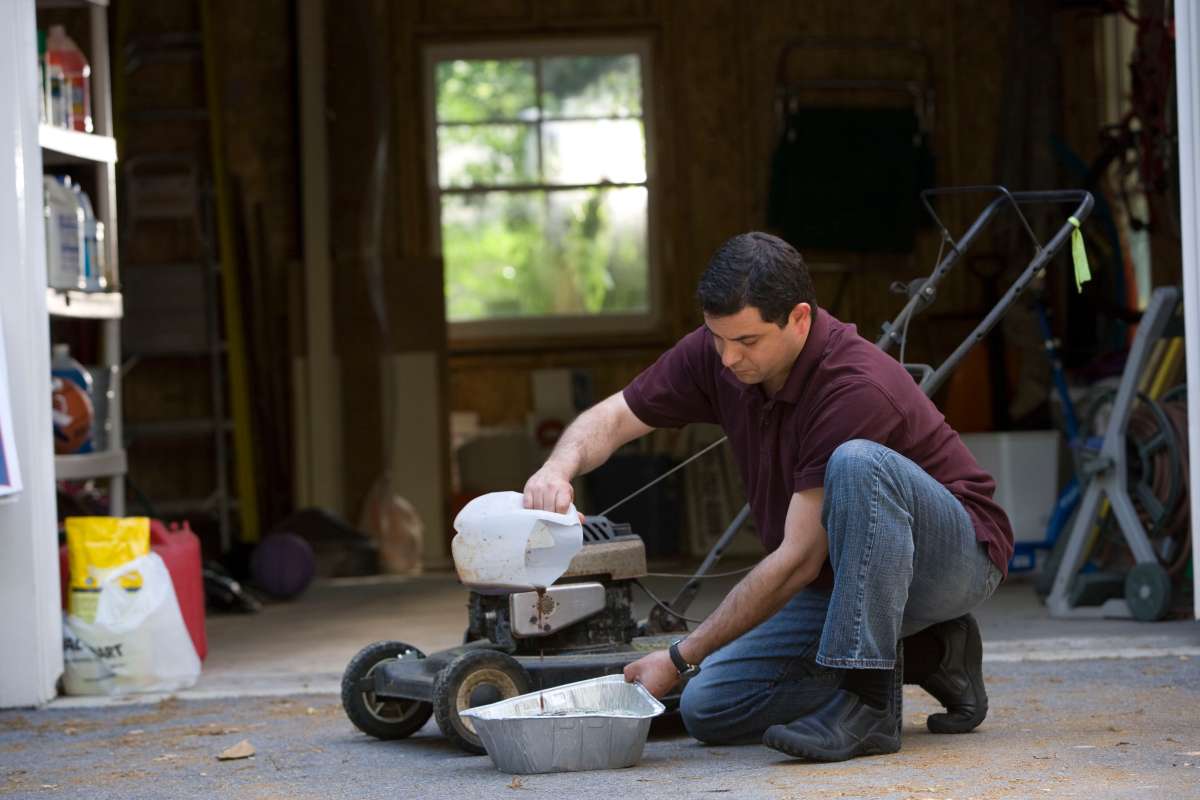
Got bugs? Are you having problems with roaches or rodents? Is it easy for insects and rodents to get into your house?
In order to restore the health of your home, it is absolutely essential to have a working knowledge of the various strategies for pest control. What exactly are these approaches that we are discussing here?
Pests provide a significant risk to anything that can breathe, whether it's a human, an animal, or a plant.
There are many different kinds of pests, the most common of which are mosquitoes, termites, flies, and fungi, all of which can have a negative impact on us, our food supply, and the environment around us.
It's possible that you're not entirely conscious of the fact that you're sharing food with these annoying live things. It really is revolting!
Now hold on there! Before devising any strategies to get rid of pests, it is essential to determine the type of unwanted critters you are up against as well as the lives they lead.
Because of this, you will be able to put into action the proper technique and get rid of them in an easy way.
The following is a list of the many different kinds of techniques for the control of pests that are available:
Biological
Living organisms are utilised in the process of biological pest control in order to assist in the eradication of the infestation.
This can refer to anything from parasites and viruses to predators and other animals.
One of the most significant benefits of using natural solutions is that these approaches do not involve the application of harmful chemicals. Because of this, utilising this method does not negatively impact either human health or the natural environment.
In addition, pests do not develop immunity to the solution used for pest control over the course of time.
However, the majority of biological treatments may only be used effectively on relatively minor pest problems, such as those caused by plants or insects, and they often require some amount of time before yielding results.
Natural predators
This approach to preventing pest infestations is really old-fashioned. People have been using natural predators to manage the number of pests for centuries. The fact that it is still practised today is evidence of how successful this approach can be.
Gardeners who wish to keep a population of pests under control without resorting to the use of chemicals most frequently employ this strategy.
The utilisation of ladybugs as a means of mitigating or eradicating aphid infestations is one of the most common and widespread applications of this strategy.
The introduction of a substantial quantity of a non-native species into a region, on the other hand, can have the reverse of the intended effect.
The enormous cane toad of Australia serves as a prime example of this. Cane beetles were responsible for significant crop damage before this type of toad was brought into the nation and released there to control their population.
The number of beetles did not decrease to the extent that was anticipated because of the toads.
They instead bred at an uncontrollable rate, and as a result, they have become a significant ecological problem in their own right.
Microorganisms
The application of helpful microbes to plant surfaces is one more common form of natural pest management that is utilised by gardeners.
Using microbes as a form of pest control is a preventative strategy, in contrast to the use of natural predators.
When a plant is in a symbiotic relationship with a beneficial microorganism, the beneficial microorganism will actively defend the plant by discouraging the growth of dangerous bacteria and fungus and by driving away pests.
Chemical
Chemical pest control refers to the practice of using pesticides to eliminate unwanted pests. The availability and use of these solutions are often simpler than that of biological approaches.
In addition, the majority of chemical applications yield results that are more rapid, if not immediate, in nature.
Examples of these would include insecticides, which are substances that are designed to kill insects, and repellants, which are solutions that dissuade pests that crawl or fly within your boundary.
In spite of the many benefits they offer, these poisons can pose risks to human health and the environment if exposed to them; nevertheless, the impacts of the majority of contemporary chemicals are only transient.
You can make sure that the operation of your company or facility is not hindered by pests by taking an active approach and utilising the appropriate supplies.
When it comes to preventing and managing pests, maintaining a regular monitoring schedule and acting promptly can go a long way.
Organic
People who want to limit the damage caused by small animals and insects and who also want to safeguard the safety of their children, pets, and plants typically favour an organic or natural method. This is because organic and natural methods do not utilise synthetic chemicals.
In this situation, you may want to try using bait, a trap, or some spray. You might put poison in your bait; alternatively, you could use insecticidal soap, oil, sprays, or other similar products.
Electronic
The eradication of unwanted household invaders in a way that is both thorough and long-lasting is now feasible as a result of advances in technology. The electromagnetic and ultrasonic frequencies are two examples of electronic pest control methods.
Electromagnetic
Electromagnetic fields have been shown to have an effect on the neurological systems of a variety of species, including mice. However, it is only effective against rodents and insects.
Ultrasonic
The production of high-frequency sound waves with a relatively short length is how ultrasonic technology works.
Hygiene Control
To put it another way, pests are less likely to congregate in an area that is clean. It eliminates both the food source and the environment that bugs need to thrive and reproduce.
Therefore, it is essential to always observe proper hygiene, whether you're in the office or at home.
In addition to washing dishes and keeping a clean home, throw away any leftover food in a lockable container.
The results of other methods of pest management will be extremely short-lived if basic home hygiene standards are disregarded. This is because the pests will quickly return, and in greater numbers than before.
Even though keeping your home clean will discourage many potential pests, there are some critters that are more obstinate than others and will mock your efforts to keep your house spotless.
This is when the power of the various different strategies for preventing and controlling pests comes into play.
Destroying Potential Nesting Areas

When hunting for a spot to infest, bugs prefer to hide in a location that offers both food and secure breeding habitat.
This makes it easier for the pests to produce offspring. You will have a far better chance of getting rid of pests if you get rid of either one of these causes or both of them.
Maintaining a clean, dry, and warm environment in your residence is the most effective method for eliminating potential breeding grounds in your home.
If you keep you clean the areas of your home that are dark and damp on a regular basis, you will drastically reduce the number of places that insects can hide in your house.
Poison bait
The use of poison bait is a common form of pest control that is also quite efficient, and there are many different kinds of poison that are designed to kill particular pests.
The poison that is used for pest control often comes in one of two forms. The first can be found in granule form, and the second can be found in either a gel or a jelly.
Regardless of the variety, poisoned bait is always placed in places that exhibit signs of activity from the target pests. The bait will either be consumed directly or brought back to the nest.
In the event that you have young children or animals, it is imperative that you restrict their access to the area(s) where the poison is being used.
When consumed, certain commercially available toxins have the potential to cause severe health problems.
Burning the field
Burning fields is an age-old method of pest control that is still practised by farmers all over the world.
In order to eradicate pest populations, fire is utilised to burn away any debris that may be present, in addition to the top layer of soil.
Because fire kills beneficial insects in addition to unwanted pests and has the potential to have a detrimental effect on the soil, this strategy for controlling pests has fallen out of favour in recent decades.
A further explanation for this phenomenon is that the performance of today's pesticides has substantially improved over the years.
Trap cropping
Planting a decoy crop that the pests are more interested in eating is the key component of the trap cropping technique, which is a type of pest control strategy.
The main objective is to facilitate the process of eradication by luring pests into the decoy field where they will be more easily captured.
Large-scale farmers, on the other hand, have discovered that this strategy is ineffective since the pests have a tendency to make their way back to the main crop.
As a result of this, trap cropping may prove to be more effective when used on small homesteads or as a method of protecting a personal food garden from unwanted visitors.
Traps
The use of actual traps to catch pests is one of the oldest and most well-known methods for eradicating unwanted animals.
The majority of the time, traps are employed for the purpose of dealing with rodents, birds, other small animals, and insects.
Traps can range from being as simple as fly paper to be as intricate as baited traps.
Similar to the strategies that have been discussed thus far, the positioning of traps should centre on regions that exhibit indications of activity from the target pest.
One huge disadvantage related to the utilisation of traps is the requirement to inspect them on a regular basis in order to free any creature that has been captured and to either replace or reset any used traps.
Advantages of Using More Natural Pest Control
- Products derived from nature do not include any potentially hazardous ingredients;
- Your plants will have long-lasting protection once the natural insect predators they rely on are well established.
- There is no way for insects to protect themselves against the dangers posed by their natural enemies.
- Products made from natural ingredients are typically safer for the environment.
The Drawbacks of Relying on Natural Pest Control
- It might be challenging to eradicate every last member of a pest population;
- There is a possibility that colonies of pests will relocate or spread over a broader area;
- Because the employment of natural predators and microbes is a response rather than a preventative approach, there is more time for the severity of the infestation to likely worsen.
If you're having trouble dealing with pests, now is the time to get in touch with the pest control experts in your area.
Do you have a pest problem?
All Pests is Melbourne's trusted pest control company. We provide high-quality, affordable pest control services that use child and pet-safe methods. Plus, we offer emergency pest control services, treatments with a guarantee for pest-free premises, and complete care—inspection + treatment + prevention.
We want to help you get rid of your pests once and for all. Our team of experts will work diligently to ensure that your home or business is completely free of any unwanted guests. Contact us today for a free consultation!
Schedule a free inspection on our website now!
Conclusion
Insects, spiders, and other crawling things can pose a significant health risk to anything that can take a breath, including people, animals, and plants.
There are a wide variety of pests, the most common of which are flies, mosquitoes, termites, and fungi. There are also many other kinds of pests.
It is absolutely necessary to have a working knowledge of the various strategies for pest control if you wish to bring the health of your home back to its previous state.
Chemical pest control, also known as the use of pesticides, is a method that involves getting rid of unwanted pests by using chemicals.
In contrast to the use of natural predators, the use of microbes as a method of pest control falls under the category of preventative measures.
When a plant is in a symbiotic relationship with a microorganism that is beneficial to the plant, this will actively defend the plant against other organisms that could be harmful to the plant.
As a result of developments in technology, it is now possible to eradicate unwanted household invaders in a manner that is both comprehensive and permanent. This was previously impossible.
Electronic pest control uses a variety of different frequencies, including electromagnetic and ultrasonic ones, for example.
The importance of keeping a regular monitoring schedule and responding quickly to potential threats cannot be overstated.
The most effective method for removing potential breeding grounds from your home is to keep it clean, dry, and warm at all times. This will discourage pests from making your home their home.
Farmers from all over the world continue to use this time-honoured method of pest control, which involves setting fire to fields.
When ingested, particular toxic substances that are on the market commercially have the potential to bring on severe health issues.
One of the oldest and most well-known strategies for getting rid of unwanted animals is setting traps with the intention of catching the animals in question.
On the other hand, large-scale farmers have realised that this tactic is ineffective and have abandoned it.
When used on smaller homesteads or as a strategy for protecting a personal food garden, trap cropping may prove to be more effective than its traditional counterpart.
Content Summary
- You have a number of options available to you when it comes to pest control, which is beneficial given that it can be challenging to stop unwanted visitors from entering your home.
- It is absolutely necessary to have a working knowledge of the various strategies for pest control if you wish to bring the health of your home back to its previous state.
- It is essential to determine the type of unwanted critters you are up against as well as the lives they lead before coming up with any strategies to get rid of them before you can even begin to think of ways to get rid of them.
- As a consequence of this, you will be in a position to put into practise the appropriate strategy and get rid of them in an uncomplicated manner.
- In the process of biological pest control, living organisms are utilised in order to contribute to the elimination of the infestation. This is done in order to help eradicate the problem.
- Additionally, it is not possible for pests to become immune to the solution that is being used for pest control over the course of time.
- However, the majority of biological treatments can only be used effectively on relatively minor pest problems, such as those caused by plants or insects, and they typically require some amount of time before producing results. This limits their applicability to a relatively small subset of potential pest problems.
- Since the beginning of human history, people have relied on natural predators to control the population of unwanted pests.
- The majority of the time, this tactic is used by gardeners who want to prevent having to resort to the use of chemicals in order to keep a population of unwanted pests under control.
- The practise of applying beneficial microbes to the surface of plants as a method of naturally controlling pests is becoming increasingly common among gardeners.
- In contrast to the use of natural predators, the use of microbes as a method of pest control falls under the category of preventative measures.
- Chemical pest control, also known as the use of pesticides, is a method that involves getting rid of unwanted pests by using chemicals.
- You can ensure that the operation of your company or facility is not hampered by pests by taking a proactive approach and utilising the appropriate supplies. This can be done by removing potential breeding grounds for the pests.
- When it comes to the prevention of pests and the management of those that have already invaded, keeping a regular monitoring schedule and acting quickly can go a long way.
- This is due to the fact that organic and natural methods do not involve the use of man-made chemicals.
- Electronic pest control uses a variety of different frequencies, including electromagnetic and ultrasonic ones, for example.
- In addition to keeping the dishes clean and the house tidy, throw away any food that has been left over and store it in a container that can be locked.
- If basic home hygiene standards aren't adhered to, the results of using other methods of pest management will only last for a very short period of time.
- Even though maintaining a clean home will drive away a good number of potential pests, there are certain critters that are more stubborn than others and will mock your efforts to maintain a spotless home.
- When searching for a location to infest, insects will look for a spot that provides both food and a safe place to breed if they are going to hide there.
- The most effective method for removing potential breeding grounds from your home is to keep it clean, dry, and warm at all times. This will discourage pests from making your home their home.
- If you regularly clean the areas of your home that are dark and damp, you will significantly cut down on the number of places in your home where insects can hide.
- The use of poison bait is a common method of pest control that is also quite effective. There are many different kinds of poison, each of which is formulated to be lethal to a specific kind of pest, and there are also many different kinds of poison.
- No matter the variety, poisoned bait is always put in areas that show signs of activity from the pests that are being targeted.
- Farmers from all over the world continue to use this time-honoured method of pest control, which involves setting fire to fields.
- The key component of the trap cropping technique, which is a type of pest control strategy, is planting a decoy crop that the pests are more interested in eating. This is done in order to combat the pests.
- The primary objective is to make the process of eradication go more smoothly by drawing pests into the decoy field, where they will be easier to catch.
- As a consequence of this, trap cropping may prove to be more successful when utilised on small homesteads or as a method of defending a personal food garden against unwelcome guests.
- One of the earliest and best-known strategies for getting rid of unwanted animals is setting traps with the intention of catching the animals in question.
- The vast majority of the time, traps are utilised for the purpose of dealing with pests such as insects, birds, and various other types of small animals and rodents.
- The positioning of traps should, in a manner analogous to that which has been discussed thus far in terms of strategies, centre on areas that display indications of activity from the pest that is the subject of this discussion.
- Generally speaking, products that are made from natural ingredients are better for the environment.
- In the event that you are having trouble controlling pests, now is the time to get in touch with the professionals who specialise in pest control in your region.
- Because the use of natural predators and microbes is a response rather than a preventative strategy, there is more time for the severity of the infestation to likely worsen.
- It may be difficult to eradicate each and every last member of a pest population. There is a possibility that colonies of pests will relocate or spread over a wider area. There is a possibility that pests will spread over a larger area.

